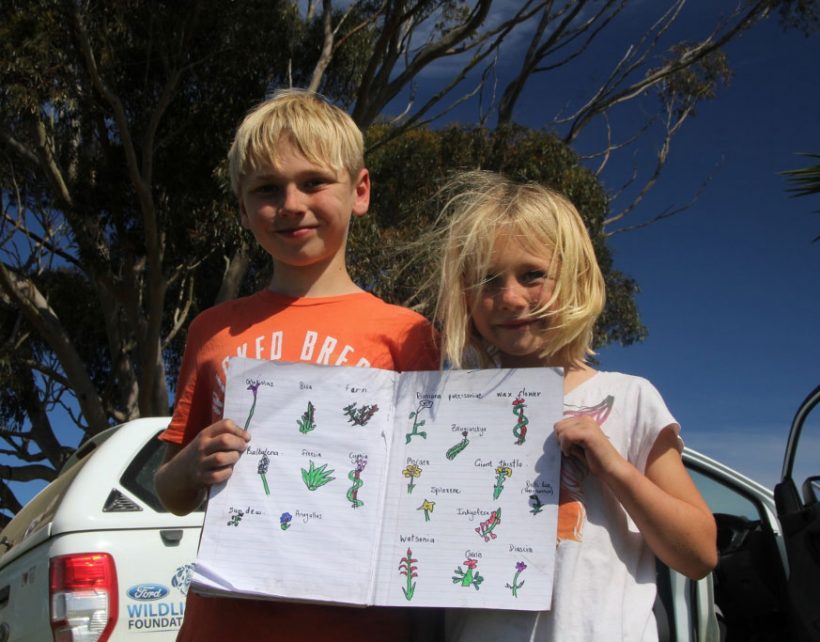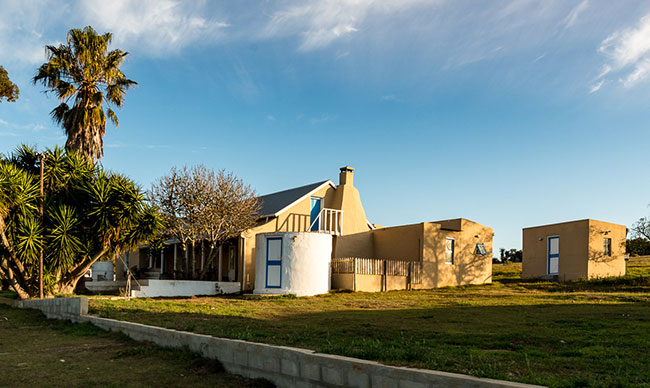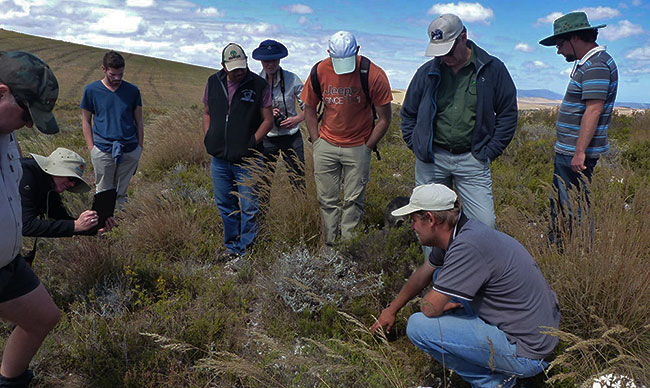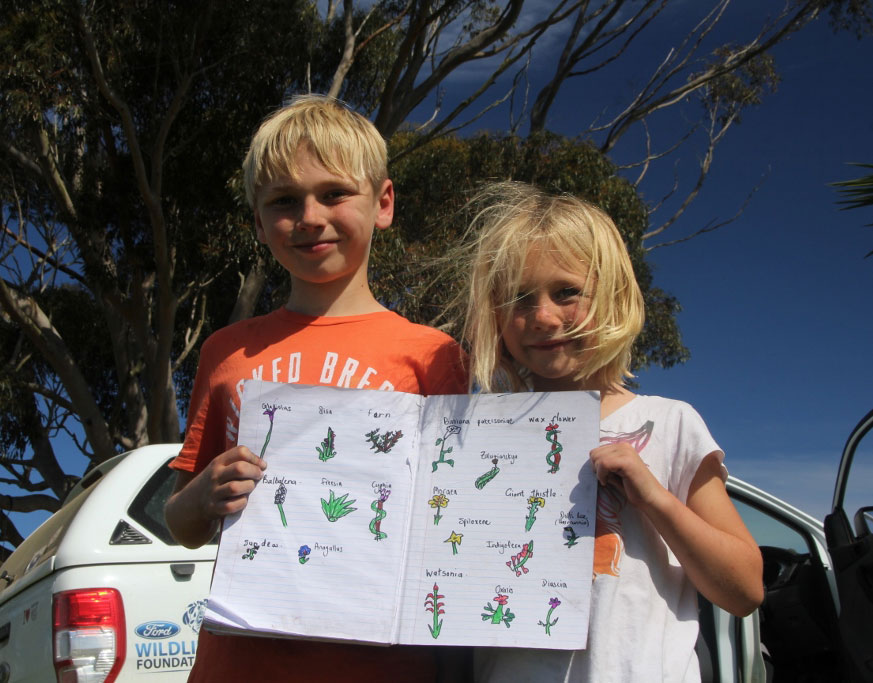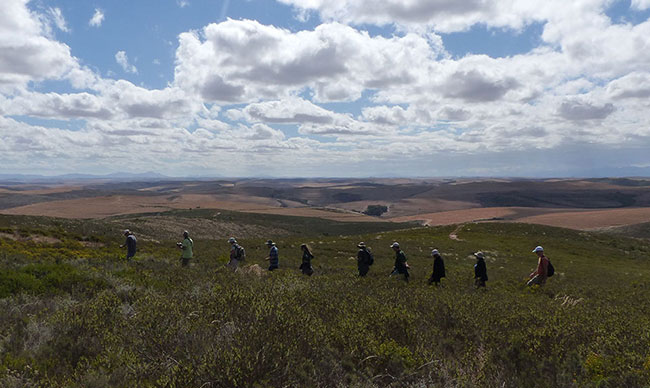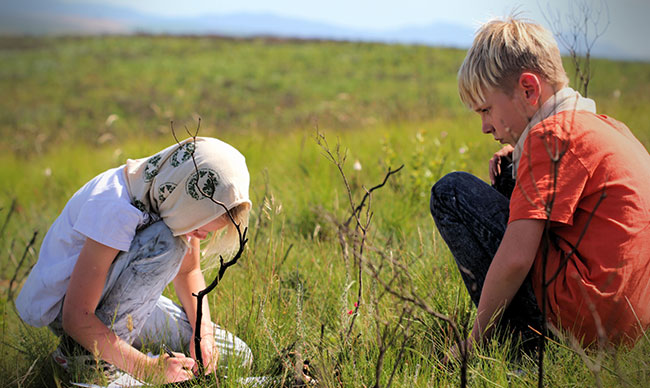It is now more than five years since we founded the world’s first Renosterveld Research and Visitor’s Centre at Haarwegskloof, home to the largest surviving area of Renosterveld in the world. Not only was this jewel in the crown of Renosterveld now conserved in perpetuity, but the reserve and centre gave us the space to welcome visitors, accommodate researchers and raise awareness about the importance of Renosterveld, one of the world’s most biodiverse and threatened Mediterranean type shrublands.
One of the keystones of effective conservation is the art of raising awareness about what we are seeking to protect, so that others are aware of its importance, sharing our passion and spreading the word. To do this most effectively we need to reach and inspire as many people as possible, no matter their age, interests or background.
To date our postgraduate research programme has brought numerous students to the Renosterveld, improving our understanding within key applied and management focused fields from pollination biology to livestock grazing. Our extensive programme of talks and guided walks from garden clubs to conferences have reached many, growing the loyal following of our small but hardworking nonprofit.
Some of the most important people to reach are the youth, as they are our custodians and conservation leaders of the future.
This is why we are now fundraising via a crowdfunder to support the development of a learning space for children at Haarwegskloof Renosterveld Reserve. We want to grow the centre to be able to invite school children and other interested groups from the Overberg and beyond to learn about the ecology and biodiversity of Renosterveld, raising awareness about the challenges facing threatened ecosystems across the globe.
So why is environmental education so important? How does it change lives? The United States Environmental Protection Agency defines environmental education as: “…a process that allows individuals to explore environmental issues, engage in problem solving and take action to improve the environment”. In order to take any step towards protecting our environment, we need awareness. What are the issues facing the world today? What are the different species that comprise our ecosystems? How do we ensure their survival?
Environmental education has undergone a series of paradigm shifts over time in South Africa.
- Prior to 1994 it was only undertaken by conservation bodies and nonprofits with little connection to formal education.
- Post 1994, the right to a healthy environment became a part of South Africa’s constitution, but biodiversity conservation was initially neglected with a focus only on ‘sustainable development of the environment’.
- In more recent years, environmental education became increasingly recognised as a ‘vital element’ of all parts of the National Curriculum. It helps to develop environmentally literate, aware and proactive citizens.
Children the world over are increasingly becoming more distanced from the natural world to the point that it has acquired the term ‘Nature Deficit Disorder’.
In South Africa a failing education system has led to only 15% of youth attaining adequate grades to secure university places and more than 50% of youth are unemployed. Within this context it is easy for the destruction of nature to be perceived to be of little consequence.
However, it is widely understood across the environmental sector that children who participated in outdoor nature-focused activities are more likely to develop a positive attitude towards the importance of the environment as adults, encouraging them to implement change within their daily lives to benefit the environment. It also plays a key part in training the conservationists of tomorrow, inspiring them through immersion in the natural world.
Given the state of the earth that our future generations will inherit, it is crucial that we prepare our children with the skills to become the problem solvers and decision makers of tomorrow. The time to act is now.
If you would like to help the ORCT to develop a learning hub for children at Haarwegskloof Renosterveld Reserve, more information can be found here (we’ve extended our deadline – UNTIL END FEBRUARY 2020). We thank you for your support.

